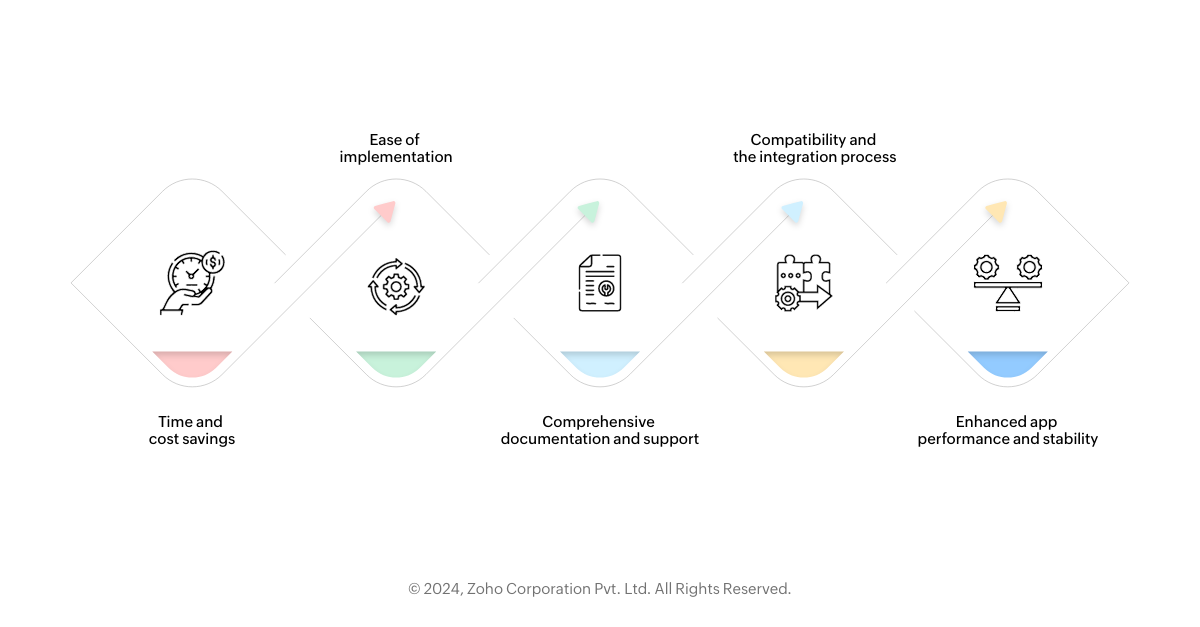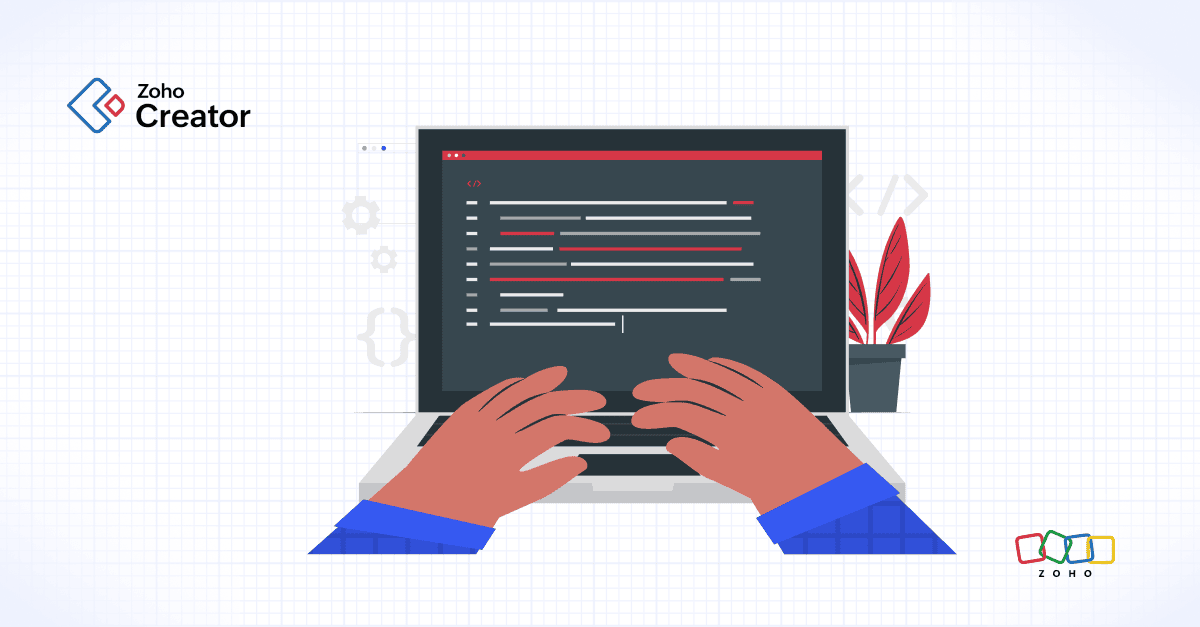- HOME
- Know Your Tech
- What are mobile SDKs and how do they work?
What are mobile SDKs and how do they work?
- Last Updated : December 4, 2025
- 2.9K Views
- 5 Min Read
Mobile app development is a rapidly growing field, with businesses and developers striving to create innovative and user-friendly applications to meet the demands of today's mobile-driven world. However, developing mobile apps from scratch can be a time-consuming and complex process.
Highlights
- A mobile SDK is a prebuilt toolkit developers use to add specific features to mobile apps.
SDKs speed up development by removing the need to code everything from scratch.
They usually include libraries, APIs, documentation, and testing tools.
Using secure, updated SDKs ensures better app performance and stability.
SDK choices influence app speed, compatibility, and user experience.
This is where mobile SDKs (software development kits) come into play, offering a range of tools and resources to accelerate the development process and enhance the functionality of mobile applications.
What is a mobile SDK?
A mobile SDK contains a set of tools designed to assist developers in building platform-specific mobile applications and implementing new features in existing apps. The resources included in an SDK typically comprise libraries, documents, code samples, guides, and APIs. These components enable them to build more complex functionalities without the need for extensive domain knowledge, ultimately saving time and money.
Unlike an API, which serves as a communication bridge between systems, a mobile SDK is a downloadable software package that provides everything necessary to add new components to mobile apps. It includes code libraries, tutorials, and the APIs themselves.
In some cases, a mobile SDK can even facilitate the creation of entirely new applications for Android or iOS devices, or enhance existing apps by implementing features, such as custom ads or push notifications.
How do mobile SDKs work?
Integration
Developers integrate the mobile SDK into their app development environment, linking the necessary libraries and configuring settings.
APIs and libraries
The kits provide prebuilt APIs and libraries, offering readymade functions and features that developers can use in their mobile applications.
Documentation and sample code
SDKs come with documentation that guides developers on how to use the provided features. Sample code is often included to demonstrate implementation in real-world scenarios.
Testing and debugging
Developers test their applications using the integrated SDK, ensuring that features work correctly in simulated and real-world conditions. SDKs also provide tools for debugging and troubleshooting.
Updates and support
SDKs are regularly updated by providers, offering new features and bug fixes. Developers can access support resources for assistance, including forums, documentation updates, and direct support channels.
Benefits of using mobile SDKs in developing mobile apps
A mobile SDK offers benefits for both app developers and the companies that provide these packages. Let's explore some of the advantages of using SDKs in mobile app development.

Time and cost savings
By providing prebuilt solutions and ready-to-use components, SDKs eliminate the need for app developers to write code from scratch for every new implementation. This significantly reduces development time and allows businesses to bring their apps to market faster, gaining a competitive edge.
Ease of implementation
SDKs simplify the implementation of complex functionalities by providing developers with prebuilt tools and resources. This saves them from having to delve into intricate technical details, enabling them to focus on the core features and user experience of the app.
With a mobile SDK, developers can quickly integrate advanced functionalities, such as social media login, in-app advertising, or location-based services, without extensive domain knowledge.
Comprehensive documentation and support
A good mobile SDK is accompanied by detailed documentation and support resources, making it easier for developers to understand and utilize the provided tools and APIs. This acts as a guide, providing clear instructions on how to integrate the SDK into the app and implement specific functionalities. Additionally, SDK providers often offer support channels, such as forums or dedicated support teams, where they can seek assistance and get their questions answered.
Compatibility and the integration process
SDKs are designed to work seamlessly with other SDKs and development tools, ensuring compatibility and easy integration with existing frameworks or libraries. This compatibility allows developers to leverage the benefits of multiple SDKs simultaneously, enhancing the functionality and performance of their apps.
Whether it's integrating an Android app, social media features, payment gateways, or mapping services, a mobile SDK provides a convenient way to incorporate third-party functionality into mobile applications.
Enhanced app performance and stability
SDKs are developed with performance and stability in mind. They undergo rigorous testing and optimization to ensure that they work efficiently and don't negatively impact the performance, battery life, or data consumption of the mobile device itself. By utilizing SDKs, developers can benefit from the expertise of the SDK provider, resulting in a more robust and reliable app.
4 reasons why you should leverage mobile SDKs
1. Accelerated development
SDKs provide prebuilt tools, libraries, and components that can significantly speed up the development process. By leveraging existing functionalities, developers can save time and effort, reducing the overall time to market for their applications.
2. Consistency and reliability
By incorporating established SDKs into your project, you benefit from the expertise of developers who have specialized in a specific platform, solving particular problems or providing specific features. This can enhance the overall reliability and stability of your application.
3. Access to advanced features
SDKs often come equipped with advanced features that may be challenging or time-consuming to implement from scratch. By integrating these SDKs into your project, you gain access to capabilities like analytics tools, authentication, and cloud services, without having to code it yourself.
4. Cross-platform compatibility
SDKs are often designed to create applications that work seamlessly across different platforms and devices. This cross-platform compatibility can be a significant advantage, allowing users to write code once and deploy it on multiple operating systems or devices, saving both time and resources in the long run.
How to choose an SDK?
While SDKs offer numerous benefits, it's crucial to choose the right mobile SDK for your specific app development needs. Here are some considerations to keep in mind when selecting an SDK:
1. Compatibility and integration
Ensure that the SDK you choose is compatible with your app's development platform or programming language and can be seamlessly integrated into your existing codebase. Consider the SDK's compatibility with other SDKs or libraries that you may already be using, to avoid any conflicts or performance issues.
2. Documentation and support
Evaluate the quality and comprehensiveness of the SDK's documentation and support resources. Look for detailed guides, code samples, and tutorials that will assist you in utilizing the SDK effectively. Additionally, consider the availability of support channels, such as forums or dedicated support teams, to address any queries or issues that may arise during development.
3. Performance and stability
Check the performance and stability of the mobile SDK by reviewing user reviews, ratings, and feedback from other developers who have used it. Ensure that the SDK doesn't negatively impact app performance, battery life, or data consumption. A reliable and well-optimized SDK will contribute to the overall performance and user experience of your app.
4. Data protection and privacy
Consider the reputation and track record of the SDK provider regarding data protection and privacy. Ensure that the mobile SDK adheres to industry-standard security practices and provides robust measures to protect user data. This is crucial to maintain user trust and prevent potential security risks.
Conclusion
Mobile SDKs, whether iOS or Android, play a vital role in accelerating mobile app development and enhancing the functionality of mobile applications. They provide developers with a range of tools, libraries, and APIs to simplify the implementation of complex features, reduce mobile application development time, and improve app performance. By leveraging the benefits of Zoho Creator's software development kits, developers can create innovative and user-friendly mobile apps that meet the ever-growing demands of today's mobile-centric world. Click below to explore our comprehensive guide to mobile application development.
 Szhruthi Boopathy
Szhruthi BoopathyPassionate product marketer specializing in low-code and AI-powered app development. When I'm not crafting compelling content and video collaterals, you'll find me immersed in the world of painting or lost in a good book.



